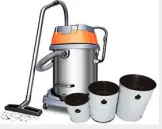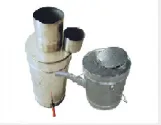-
 8613931787312
8613931787312 -
 Botou Industrial Zone on the east side of National Highway 104, Botou City, Hebei Province
Botou Industrial Zone on the east side of National Highway 104, Botou City, Hebei Province
- Afrikaans
- Albanian
- Amharic
- Arabic
- Armenian
- Azerbaijani
- Basque
- Belarusian
- Bengali
- Bosnian
- Bulgarian
- Catalan
- Cebuano
- Corsican
- Croatian
- Czech
- Danish
- Dutch
- English
- Esperanto
- Estonian
- Finnish
- French
- Frisian
- Galician
- Georgian
- German
- Greek
- Gujarati
- haitian_creole
- hausa
- hawaiian
- Hebrew
- Hindi
- Miao
- Hungarian
- Icelandic
- igbo
- Indonesian
- irish
- Italian
- Japanese
- Javanese
- Kannada
- kazakh
- Khmer
- Rwandese
- Korean
- Kurdish
- Kyrgyz
- Lao
- Latin
- Latvian
- Lithuanian
- Luxembourgish
- Macedonian
- Malgashi
- Malay
- Malayalam
- Maltese
- Maori
- Marathi
- Mongolian
- Myanmar
- Nepali
- Norwegian
- Norwegian
- Occitan
- Pashto
- Persian
- Polish
- Portuguese
- Punjabi
- Romanian
- Russian
- Samoan
- scottish-gaelic
- Serbian
- Sesotho
- Shona
- Sindhi
- Sinhala
- Slovak
- Slovenian
- Somali
- Spanish
- Sundanese
- Swahili
- Swedish
- Tagalog
- Tajik
- Tamil
- Tatar
- Telugu
- Thai
- Turkish
- Turkmen
- Ukrainian
- Urdu
- Uighur
- Uzbek
- Vietnamese
- Welsh
- Bantu
- Yiddish
- Yoruba
- Zulu
Feb . 17, 2025 20:14
Back to list
welded pipe machine
The rapidly advancing technology in the industrial manufacturing sector has led to significant improvements in welded pipe machines, underscoring their importance in the piping industry. These machines are quintessential for producing robust welded pipes that are central to a myriad of applications ranging from oil and gas pipelines to water supply systems. The need for high-quality, durable, and efficient welded pipes is undisputed, making the choice of machine critical for businesses aiming to meet global standards.
Training and continuous learning are pivotal in maintaining an edge in operating welded pipe machines. Many manufacturers provide comprehensive training programs that keep operators abreast of the latest advancements and techniques in pipe welding. This ongoing education fosters expertise, ensuring that operators remain proficient with evolving technologies and methodologies. The authoritative nature of welded pipe machines is underscored by their ubiquitous presence in numerous industries. Their ability to produce pipes that meet rigorous industry standards—such as ASTM, API, or JIS—serves as a testament to their indispensable role. Companies investing in these machines demonstrate a commitment to quality, safety, and compliance, reassuring clients and stakeholders of their production capabilities. Trustworthiness, a cornerstone of any manufacturing operation, is considerably enhanced by using high-quality welded pipe machines. Clients seeking pipe products demand assurance that they are investing in reliability and performance. Machines that pass stringent quality checks before deployment often signify a manufacturer's dedication to excellence. Such dedication builds trust with customers, cultivating long-term business relationships. In conclusion, welded pipe machines are more than just components of a production line; they are a pivotal force in the industrial manufacturing ecosystem. Those who master their operation through continuous education, leverage advanced technology, and adhere to meticulous quality standards are poised to lead in a highly competitive market. As industries evolve, the need for precision, reliability, and efficiency in welded pipe production remains constant, ensuring these machines' place at the heart of manufacturing excellence.


Training and continuous learning are pivotal in maintaining an edge in operating welded pipe machines. Many manufacturers provide comprehensive training programs that keep operators abreast of the latest advancements and techniques in pipe welding. This ongoing education fosters expertise, ensuring that operators remain proficient with evolving technologies and methodologies. The authoritative nature of welded pipe machines is underscored by their ubiquitous presence in numerous industries. Their ability to produce pipes that meet rigorous industry standards—such as ASTM, API, or JIS—serves as a testament to their indispensable role. Companies investing in these machines demonstrate a commitment to quality, safety, and compliance, reassuring clients and stakeholders of their production capabilities. Trustworthiness, a cornerstone of any manufacturing operation, is considerably enhanced by using high-quality welded pipe machines. Clients seeking pipe products demand assurance that they are investing in reliability and performance. Machines that pass stringent quality checks before deployment often signify a manufacturer's dedication to excellence. Such dedication builds trust with customers, cultivating long-term business relationships. In conclusion, welded pipe machines are more than just components of a production line; they are a pivotal force in the industrial manufacturing ecosystem. Those who master their operation through continuous education, leverage advanced technology, and adhere to meticulous quality standards are poised to lead in a highly competitive market. As industries evolve, the need for precision, reliability, and efficiency in welded pipe production remains constant, ensuring these machines' place at the heart of manufacturing excellence.
Next:
Latest News
-
The Rise of Laser Welding: Precision Meets Power in Modern MetalworkNewsAug.06,2025
-
Streamlining Industrial Packaging: The Power of Barrel Production LinesNewsAug.06,2025
-
Revolutionizing Metal Joining: The Power of Automatic Seam Welding MachinesNewsAug.06,2025
-
Powering Industrial Innovation: The Role of Pipe and Tube Machinery in Modern ManufacturingNewsAug.06,2025
-
Exploring the World of Resistance Welding: Equipment, Manufacturers, and Pricing InsightsNewsAug.06,2025
-
Advancing Container Manufacturing: The Role of the Modern Can Welding MachineNewsAug.06,2025
-
Understanding Automatic Seam Welding Machines: A Game Changer in Welding TechnologyNewsJul.18,2025
related products
-
 Pneumatic Handle Welding MachineSep . 13, 2024
Pneumatic Handle Welding MachineSep . 13, 2024 -
 Fully Automatic Kaiping Production LineOct . 17, 2024
Fully Automatic Kaiping Production LineOct . 17, 2024 -
 Fully Automatic Metal Bucket Lifting HeadphonesSep . 14, 2024
Fully Automatic Metal Bucket Lifting HeadphonesSep . 14, 2024

